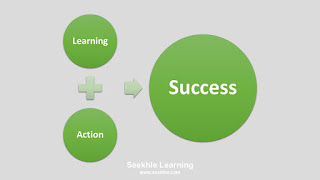It is a well-established notion that learning is important for growth and success, however, it will help many people if can revisit the key benefits of making learning a habit.
Here are a few thoughts on why learning is important, collated from various sources and experiences:
1. We are born to learn
2. Knowledge is food for our minds just like protein is food for our muscles
3. A well-learned person is respected by all
4. We get better at problem-solving
5. Learning a new skill can get us a better work opportunity or growth in the current one
6. Keeps our mind sharp and opens up our thinking
7. Builds the ability and tendency for innovation
8. The quickest way to motivate oneself is to learn something
9. The quickest way to motivate someone else is to teach them something
Now if we combine our learning with action, that concocts the solution for success. Here are a few actions that can follow through our learning endeavors:
a. Make notes so that you can refer to them later
b. Write an article or a blog post about what you learned. It will help you summarize the learning
c. Teach what you learned to someone. This will really embed it in your brain and mature your thought as well to a better understanding
d. Apply it in your day to day life
e. Do it every day so that it becomes a habit
You can also read tips on improving your learn-ability. So why wait, let’s start learning and applying to succeed.
Please share your thoughts and questions in the comments below.

